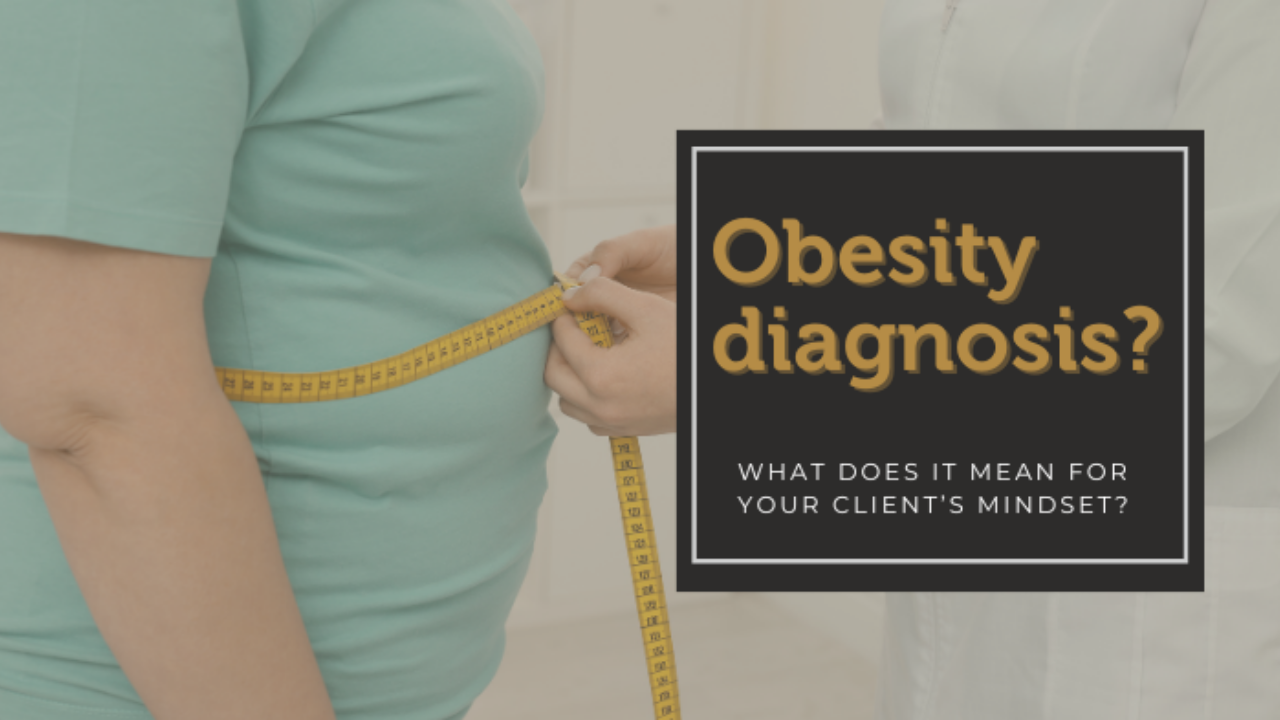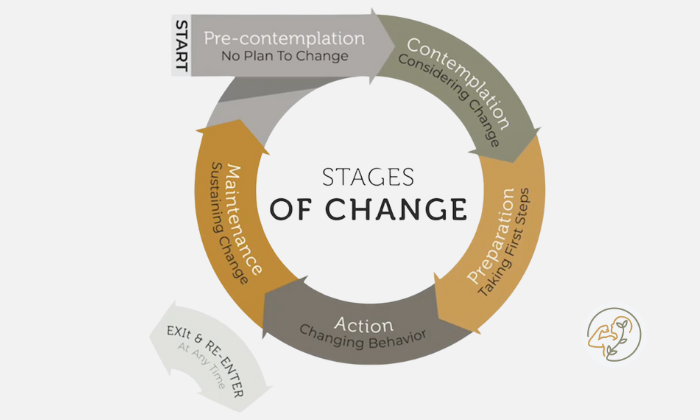How an Obesity Diagnosis Impacts Your Client's Fitness Journey
Sep 18, 2025
In 2013, the American Medical Association formally recognized obesity as a disease, which is really great in some respects, but unfortunate in others.
Getting a formal diagnosis of obesity can significantly impact your client's health and fitness journey.
An obesity diagnosis can lead them to a fixed mindset and make them feel like obesity is something they are stuck with, rather than being something they have any control over.
That’s because the general mindset becomes “I have to deal with this” rather than feeling like it’s something they can change.
And while you and I both know there is a way forward after this diagnosis, your client may be in a position where they feel like they are stuck, and this is now part of their identity. Ouch.
But having obesity formally recognized as a disease also has its benefits, such as there being less stigma and self-blame.
Let’s dive into how formally recognizing obesity as a disease can impact your client's health and fitness journey.
Your Client's Fitness Journey and an Obesity Diagnosis
There are some serious pros and cons to this decision of classifying obesity as a disease.
Pros of Classifying Obesity as a Disease
Let’s look at the positive things that come from having obesity formally classified as a disease.
First, it means that there will be more funding for research, which is huge.
Securing more research funding means we can learn about things like why an obesity intervention succeeds or fails in a given community.
Researchers will also be able to look at how obesity impacts other aspects of our health.
Additional research means we can help people overcome obesity as we better understand different impacting factors and as the general public learns more about the effects.
With all that research comes benefits. Literally!
There will be more and better insurance coverage for people who are obese.
This insurance coverage will potentially help people afford the interventions to overcome obesity.
Having obesity as an official medical diagnosis also reduces blame, particularly self-blame.
It takes a good amount of responsibility off of the obese person and places it in the hands of the “disease.”
When you have a disease, say something like Alzheimer's, no one is blaming themselves for that. It’s a true medical diagnosis.
Cons of Classifying Obesity as a Disease
As I mentioned, there are also negative effects to classifying obesity as a disease.
Amongst other things, it can cause a fixed mindset leading to people taking less action on health behaviors, such as eating healthy and exercising.
You’ve heard me say this 945 billion times: words matter.
The word ‘disease’ relates to a body that is malfunctioning. Something is wrong, causing sickness to a person, not by a person.
The disease label gives off an “unchangeable” vibe.
A disease is simply something you have (and have to deal with) — an unlucky draw.
This perspective lowers perceived levels of control and responsibility.
Which, again, is great if you want to reduce stigma, shame, and self-blame, but it’s not so great if we want people to take action.
This perspective isn’t a great way to motivate people to exercise and eat healthy because people start thinking if obesity is a disease and it’s not changeable, why even try to be consistent with health behaviors if it won’t change anything?
Based on the very research from Hoyt et al. (2014) that first got me interested in working in the Mindset Lab at NC State, the disease label doesn’t do your client's mindset any favours (and thus, the same for health behaviours).
Note: this is a very nuanced conversation, and here I’m pulling out the mindset perspective and sharing research results (this is not me sharing a personal opinion).
What Happens When Your Client Gets Diagnosed with Obesity?
If your client's doctor told them they are obese, they basically have two options.
They can have a fixed mindset, treat obesity as something that’s out of their control, and live with it forever.
Or!
They can embrace a growth mindset and consider what healthy behaviors they can implement to overcome obesity.
It’s not just a matter of slashing calories to lose as much weight as quickly as possible — I actually highly recommend AGAINST that.
Your clients embracing a growth mindset for their health means more along the lines of adopting healthy behaviors, such as:
- Drinking enough water every day
- Getting their steps in
- Having protein with each meal
- Eating enough fiber
- Managing stress
- Getting enough sleep
All of these play an important role in their overall health, not just from a weight loss perspective.
Support Your Clients
Clients with an obesity diagnosis may come to you scared because they feel they are stuck this way forever (fixed mindset), curious if there is a better way, or confident that working with you can help them become healthier inside and out.
These are all examples of clients in various stages of change. Understanding which stage your client is in will help you support them on this journey.
You will likely have to do a lot of mindset work with a client who has been diagnosed with obesity to help them truly shift their habits and behaviors to make lasting change.
If you want to improve your coaching skills and feel confident guiding real, lasting behavior change, start with my 5 FREE Mindset and Behavior Change Lessons.
These bite-sized trainings are packed with tools you can start using right away to help you retain clients longer, confidently help clients work through mindset barriers, and make your coaching more profitable.
The Health Mindset Coaching Certification is the best way to help your clients improve their mindset and create lasting behavior change. This 14-week program for health and fitness professionals equips you with the skills you need to help your clients end self-sabotage, break through mindset barriers, and make behavior changes for good.
You'll learn research-backed methods that will help your clients embrace a growth mindset and create lasting behavior change.
Want to learn more about how your mindset and obesity are interconnected? Check out this episode of the Not Another Mindset Show podcast!
Check out the original post here.
Connect with us!
Email: [email protected]
IG:@coachkaseyjo@healthmindsetcert
Sources
Hoyt, C. L., Burnette, J. L., & Auster-Gussman, L. (2014). “Obesity is a disease” examining the self-regulatory impact of this public-health message. Psychological science, 25(4), 997-1002.





